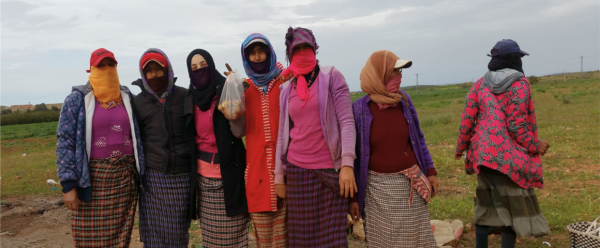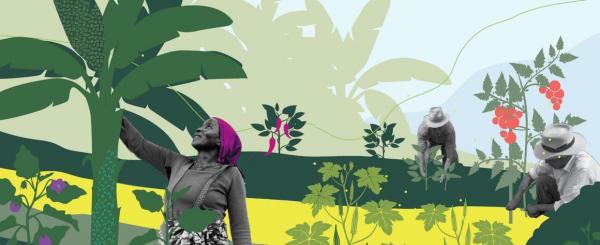Just out 30 January 2026
- Home
- CIRAD news
- News
- A participatory game for territorial management
Playing at changing how we manage territories

Players using a version of the TerriStories® game © P. D'Aquino, CIRAD
What if local populations could choose the future of their village or region, in a concerted way and entirely autonomously? Resource and land management involves a number of sectors and is often gives rise to inequality or conflict. Involving local players in diagnosis and decision making avoids such issues. This was what prompted CIRAD scientists to develop the TerriStories® game, which is the subject of the latest issue of Perspective, the CIRAD policy brief.
"By means of simulations, the game reveals an endogenous, local perception of territorial development", says CIRAD geographer Patrick d’Aquino. "The participants themselves shape the collective rules that best respond to the constraints and needs of the majority."
The game then has a direct impact on reality, since it creates the conditions for enabling stakeholders to imagine their own operational approaches. The method is based on making players autonomous and on a step-by-step process that removes obstacles to action one by one.
Conclusive results in Senegal and elsewhere
TerriStories® was first tested in the late 1990s. At the time, the Senegalese town of Ross Béthio was given new territorial management powers, in line with national decentralization. At the same time, agricultural expansion meant that less and less land was available for livestock farmers, and there was therefore a threat of land use conflict.
A team of scientists, local politicians and development staff used TerriStories® to draft new collective land use rules. This led on to Senegal's first land use and allocation plan (POAS). Local people were then able to implement the measures pinpointed using the game in 2000 entirely autonomously, and the operation was completed in 2006.
The approach has since been recognized on a national level. Other towns and villages in Senegal have used TerriStories® to draft and roll out their own POASs. The game has been adapted to work on a wider scale, covering several municipalities or regions, and can now be used on a whole-country scale. Senegal, Burkina Faso, Burma, Ivory Coast and Vietnam have all carried out such simulations.
Perspective
With Perspective, CIRAD sets out to suggest new lines of debate and action, backed up by research work, albeit without presenting an official institutional position. This series of 4-page summaries presents novel ideas or policies on development issues of strategic importance for countries in the South: food security, land tenure, climate change, energy security, forest management, standards, etc



























